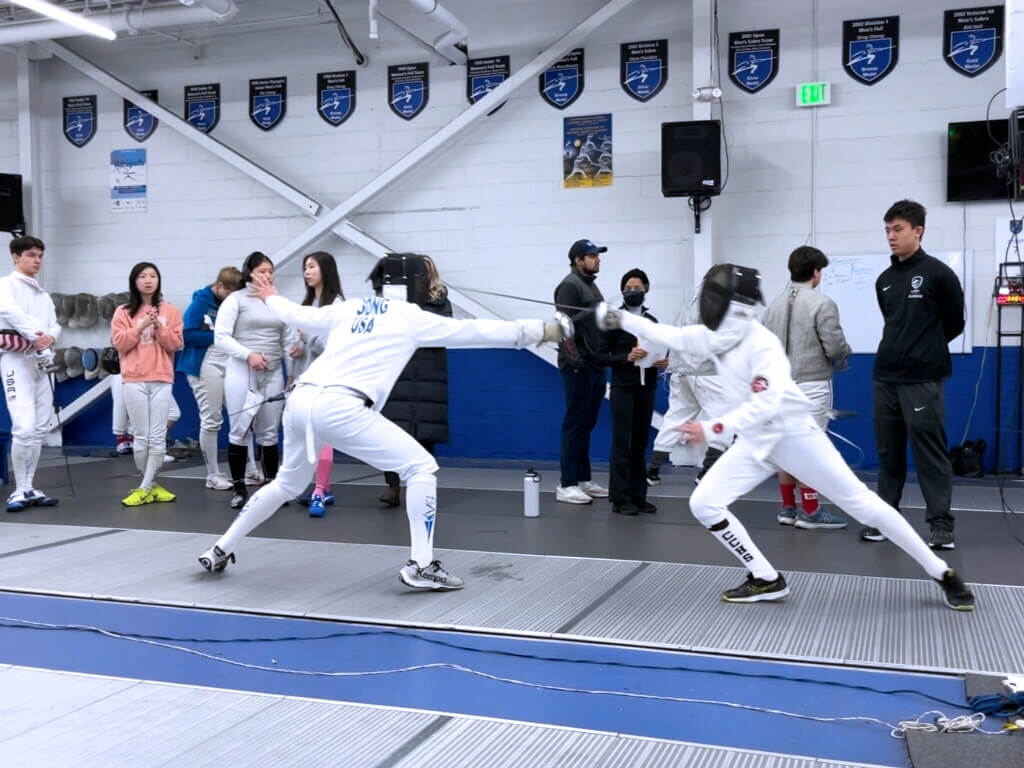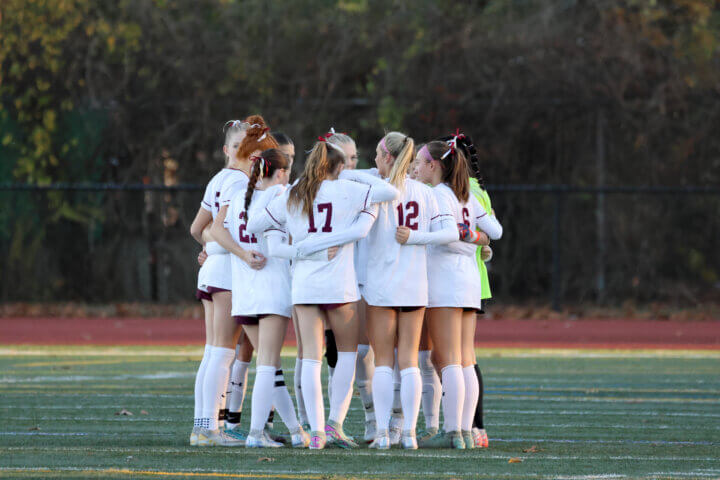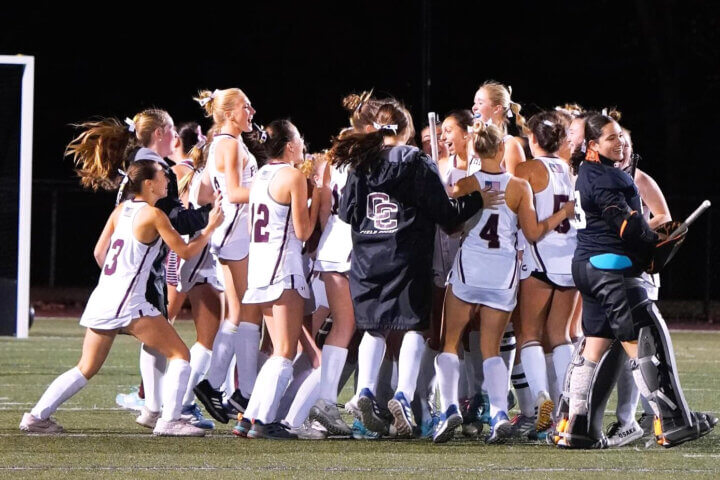By Beth Herman — Beth@theconcordbridge.org
James Feinberg, 16, brandished his first sword in second grade.
As newly elected captain of the Concord-Carlisle High School men’s fencing team, effective this fall, the rising junior will lead the reportedly oldest high school fencing team in the state — a group of competitors Coach Michael Marx calls “a perennial powerhouse.” At the same time, the team is comprised of student athletes at all levels of experience and skill.
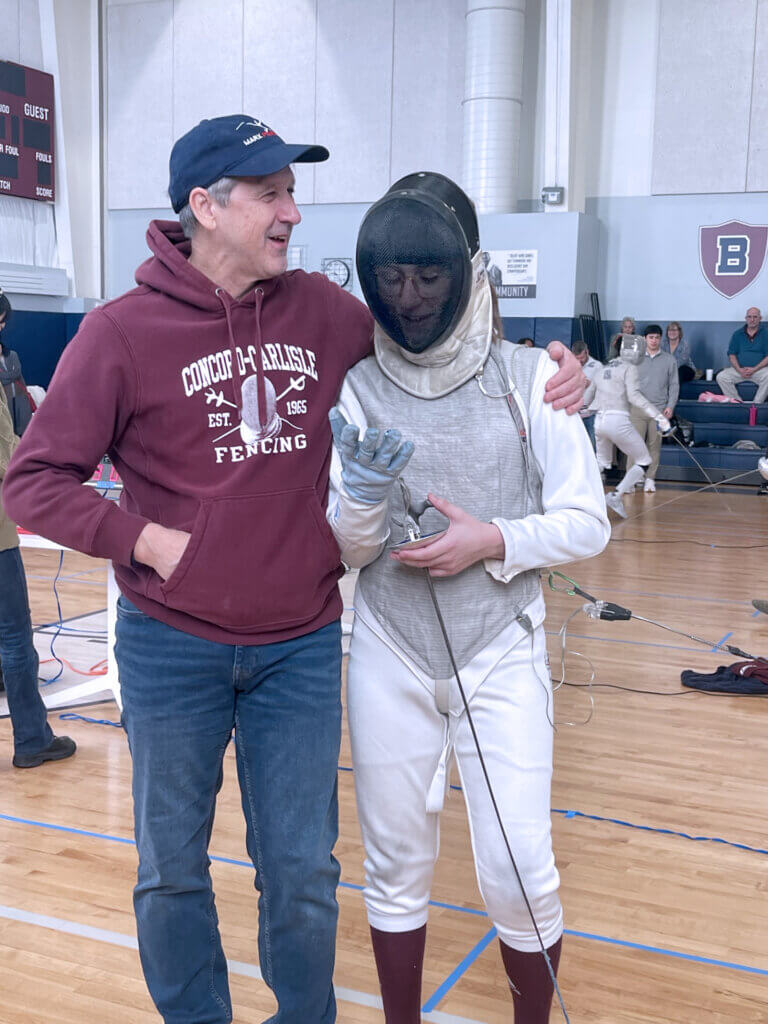
“Students are automatically admitted to compete at the state championship level when they sign up to fence,” said Marx, a five-time Olympian and former U.S. Olympic Team coach. “This gives everyone the opportunity to function as part of a team.”
CCHS Athletic Director Aaron Joncas describes high school fencing as a sport where kids who are very skilled and fence year-round at the national level — and kids who have never tried it — all have the chance to learn something new.
“The teamwork aspect of this is important,” he said. “They learn how to face an opponent that may be more experienced or talented than they are. It teaches them how to work together and about responsibility, how to persevere and handle winning and losing equally well.”
A different kind of sport
As a child, Feinberg admits he wasn’t much of a team player.
“I was a difficult kid for my parents to find a sport for,” he said. “Fencing really worked for me because I wasn’t [on a field] with something like eight people at a time. I could develop on my own. [You] are on a team, but it’s also a one-on-one thing. This was very important to me.”
Marx said CCHS students have gone on to win national competitions and even Olympic medals. Yet with all the merits of high school fencing, unlike other sports, colleges typically do not recruit fencers straight out of senior year.
However, Tatiana Zafft, 18, a two-years-running undefeated CCHS senior, was recently recruited by University of North Carolina fencing coach Matt Jednak. She’ll join brother Maximo, 20 , a UNC sophomore.
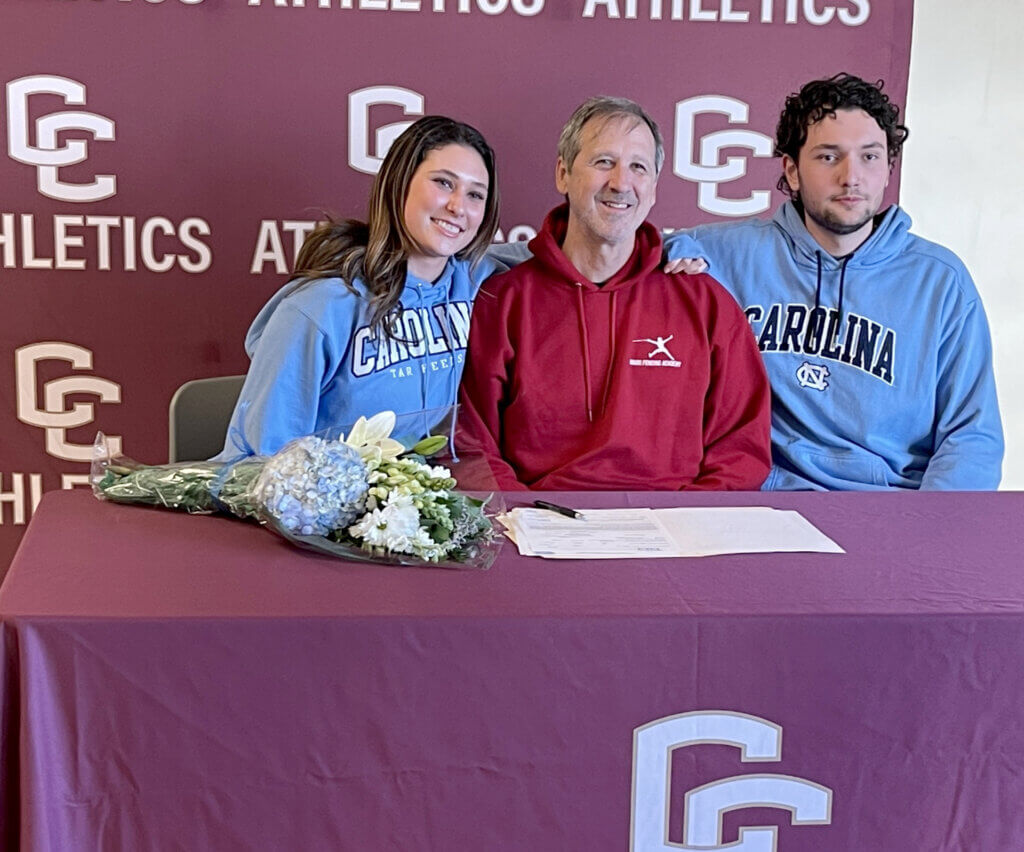
Both trained in epee — there are three disciplines in modern fencing: foil, epee, and sabre — with Marx and his wife, Lisa, at Marx Fencing Academy in Acton. But the siblings also trained at other private fencing clubs and competed in national and world competitions — a must for those who strive to reach the top of the sport and get on a university’s shortlist.
“If you don’t have a national ranking, colleges are not going to look at you,” said their mother, Sharrie. “That kind of commitment shows colleges you have a lot of dedication and drive.”
Also coached by the Marxes, Sharrie Zafft took up the sport shortly after her children did, at ages 7 ½ and 9 ½. She has been on the past six consecutive world epee teams, headed for her seventh in Dubai when a concussion sidelined her.
“If you want to maintain your spot on the team, you cannot miss a national event because it’s all based on points,” Zafft explained, noting events occur all over the globe. “It’s really a lot on kids when they are going to school, but there really isn’t a down season for fencing.”
An “up-tiered team”
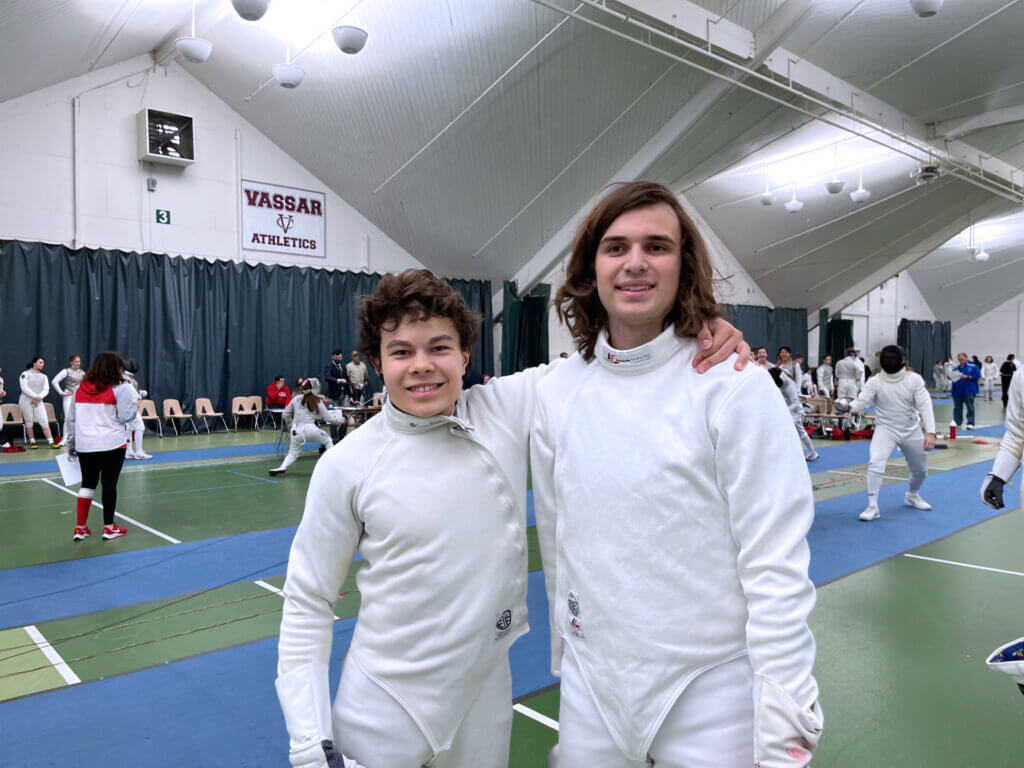
Former CCHS fencer Max Dolmetsch, 21, is a decorated competitor.
While not recruited by Cornell, the applied math major competes on the university team. He credits what he learned in CCHS fencing with his success in the sport and in school. He currently practices four to six hours a week, plus an additional four to five hours of conditioning, including weight training and running.
“Two years ago, Cornell won second place at MACFA — Mid-Atlantic Collegiate Fencing Association — regional competition,” he said.
More recently, Cornell won first place in epee (Dolmetsch’s weapon of choice) and second place in sabre and foil at USACFC, the United States Association of Collegiate Fencing Clubs, which Dolmetsch describes as including teams from a wider range of venues.
“Back in Concord, we won many state championships,” Dolmetsch said. “I was pretty proud of what we did there. We were an up-tiered team.”
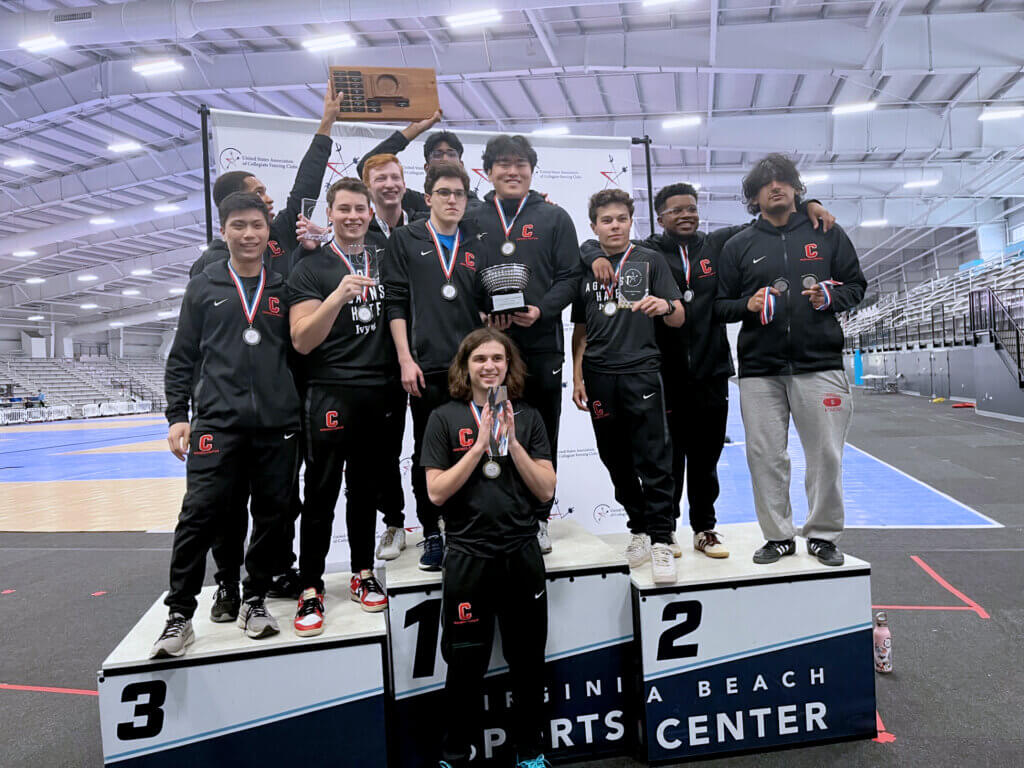
Fencing and school
Feinberg said the “number one thing” fencing has taught him is dedication. He rises daily at 5:30 a.m. to work out, practices about 10 hours a week, attends competitions and teaches young fencing students two to three times a week.
“I’ve definitely developed discipline and perseverance through fencing,” he said. With an eye toward practicing law one day, he credits fencing with helping him learn to focus in school. “I don’t have perfect grades, but fencing has really helped.”
Said Zafft, “Fencing is a really unique experience in high school because the [team] is closer than any other relationship they’re going to have. Emotions are laid so raw at such an age where nobody wants to show that kind of vulnerability. It’s an amazing experience for that reason, too.”


